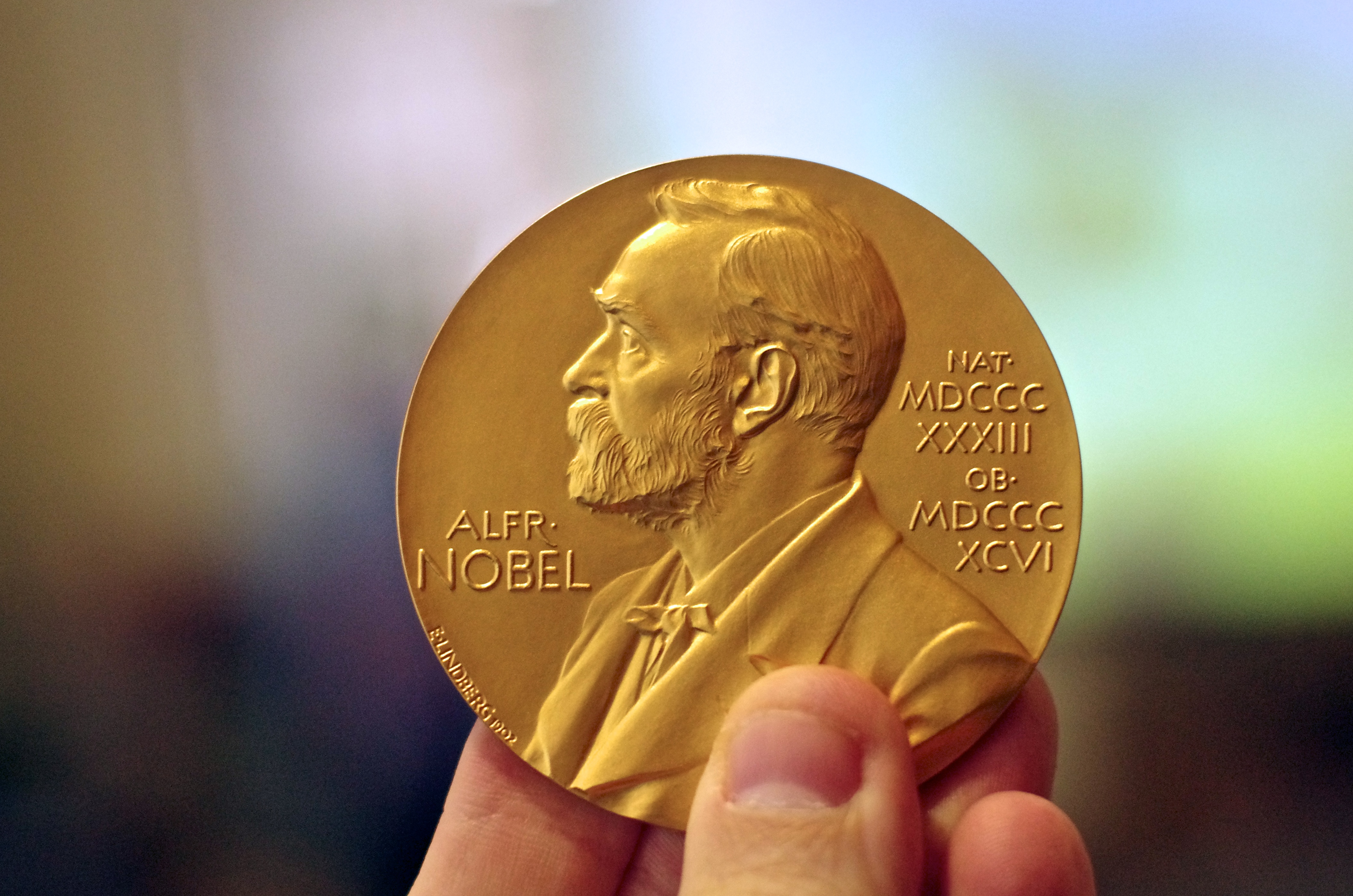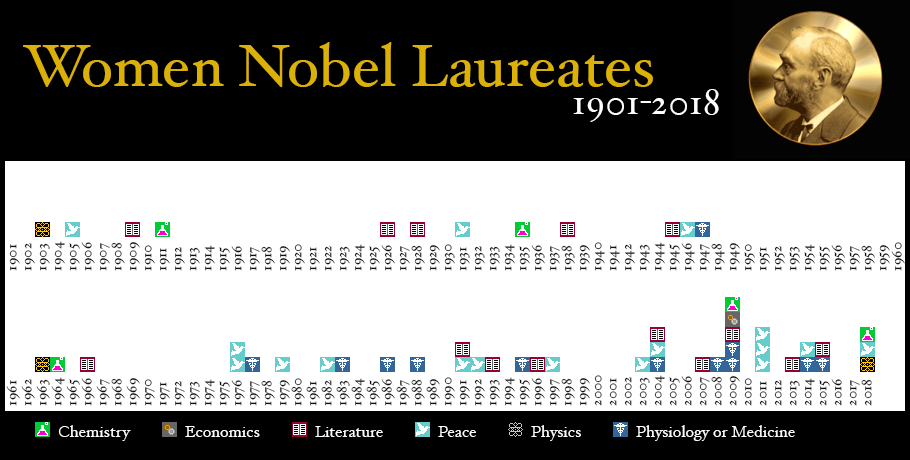The leaves are starting to fall and pumpkin spice has infected everything at the grocery store, which can only mean one thing: Nobel Prize season is upon us.
 While awards season for television and movies will pick up later this year, the scientific community will celebrate its biggest prize this week. The Nobel Prize has been awarded since 1901 to individuals and organizations who have made contributions “to the greatest benefit of mankind.” Past awards in physics, chemistry, and physiology or medicine have ranged from the discovery of X-rays (Physics, 1901) to harnessing the immune system to fight cancer (Physiology or Medicine, 2018). The Nobel Foundation’s choices are notable and expansive, but there is one common thread among all Nobels: most of the awardees are men.
While awards season for television and movies will pick up later this year, the scientific community will celebrate its biggest prize this week. The Nobel Prize has been awarded since 1901 to individuals and organizations who have made contributions “to the greatest benefit of mankind.” Past awards in physics, chemistry, and physiology or medicine have ranged from the discovery of X-rays (Physics, 1901) to harnessing the immune system to fight cancer (Physiology or Medicine, 2018). The Nobel Foundation’s choices are notable and expansive, but there is one common thread among all Nobels: most of the awardees are men.
Of the 605 laureates in physics, chemistry, and physiology or medicine, a mere 19 are women. In 1903, Marie Curie became the first woman to be awarded the Nobel Prize, which she shared with her husband Pierre Curie and Antonie Henri Becquerel in physics for their research on radiation. She was later awarded the prize a second time in 1911 in chemistry, making her one of only four individuals to win the award twice. Unfortunately, another woman wouldn’t win the Nobel Prize in a scientific field until 1935, when Marie Curie’s daughter, Irène Joliot-Curie, would share the prize in chemistry with her husband for artificially creating a radioactive element. The first woman not named Curie to win the Nobel Prize was Gerty Theresa Cori in 1947 for discovering how glycogen is converted to glucose. The remaining 16 female Nobel Laureates in scientific fields have all come since 1963. In that half-century, two women won the Nobel Prize in physics, two in chemistry, and twelve in physiology or medicine.
The dearth of female Nobel Laureates in scientific fields can be easily understood by examining the centuries of discrimination towards women in the scientific community. As outlined in Inferior by Angela Saini, prominent scientists, such as Charles Darwin, thought women were less intelligent than men and therefore not suitable for scientific careers. In the United States, women could still be denied admission to colleges and universities solely on the basis of sex until Title IX was passed in 1972. Even today, decades after its passing, women continue to feel socially isolated in many STEM graduate programs in part because of the unwelcoming social climate.
It is notable that women who won Nobel Prizes in the early 20th century worked with their husbands, a collaboration that surely helped them secure a foothold in scientific research and gain credibility. And while women’s participation in STEM has steadily grown over the decades, women today still struggle to be recognized for their contributions. Outstanding scientists, such as Vera Rubin, who discovered dark matter in the 1980s, was never recognized for her work before her death in 2016. Other women, like Jocelyn Bell Burnell and Chien-Shiung Wu, watched their male colleagues win the Nobel Prize, while their contributions went unacknowledged by the Nobel committee.
Nevertheless, although the history of the Nobel Prize is overwhelmingly male-dominated, the future does not have to be that way. “For the greatest benefit of all mankind,” the few Nobel women of the past must be joined by many more Nobel women in the future.
Peer edited by Smiti Kaul

The problem with the way the Nobel is awarded is that the Head of a Laboratory is named and all of the hardworking undergrads, postgrads, early career researchers etc who contributed are overlooked. It is about time that the Nobel prize committee is intensively lobbied to change this. The prize should go to a laboratory and all of the individuals who made a significant contribution to the research (ie whose names were on the publications), be listed. This is the first step to achieving equity. I would have thought that all of the #STEM advocates need to join ranks on this. I have put out some tweets wrt this via @VerranDeborah NB my main interest is equity in the Medical Profession where of course there are similar issues!!!